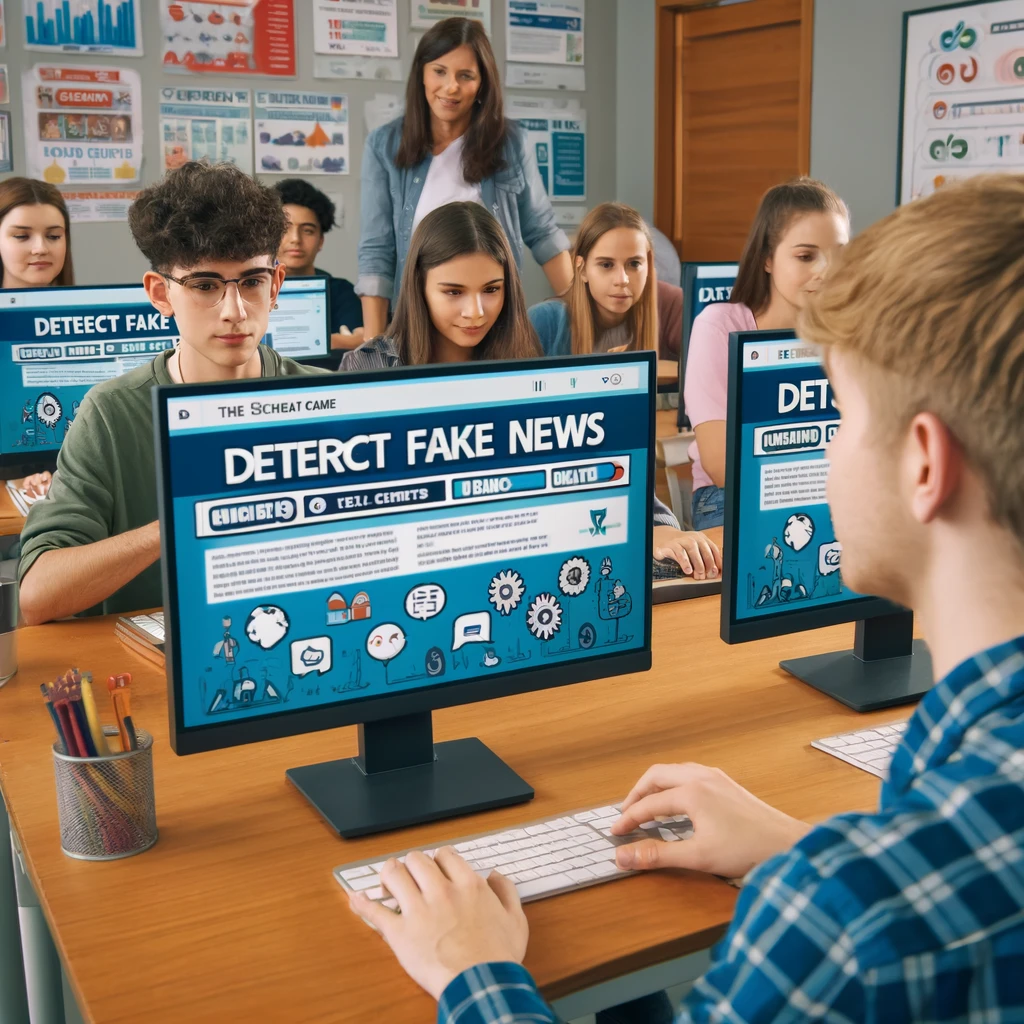In an era where misinformation is rampant, a recent study on Educational games reveals a groundbreaking approach to improving the ability of upper-secondary school students to distinguish between credible and deceptive news. Researchers from Uppsala University and other academic institutions have uncovered that a specific game can significantly enhance students’ skills in detecting fake news.
This finding is particularly crucial given the current climate. “It’s necessary for younger generations to become adept at identifying manipulation in the world of information, especially regarding deep fakes and other forms of AI-generated disinformation, which can be challenging to detect just by observation,” says Thomas Nygren, Professor of Education at Uppsala University.
The Study and Its Methods
Initiated by Nygren and three other researchers, the study involved 516 upper-secondary school students from various programs at four different schools. The focal point of their examination was the game ‘Bad News,’ used in a typical classroom setting. This research marks the first time ‘Bad News’ has been scientifically scrutinized within such an educational environment.
The students played the game in three different formats: individually, in pairs, or as entire class groups with a shared scoreboard. Interestingly, all formats showed a positive impact, much to the researchers’ delight. They had initially expected that collaborative play might yield better results.
“Students enhanced their capability to discern manipulative tactics in social media posts and to differentiate between genuine and misleading news,” Nygren comments. This improvement is a significant stride towards better media literacy among young people.
Key Findings and Implications
The study revealed that students who initially had a positive approach towards reliable news sources demonstrated higher capabilities in discerning misinformation. This positive attitude improved even further after playing the game. Many students also refined their skills in assessing credibility and explaining manipulative techniques in a more nuanced manner.
The competitive nature of the game added to its appeal, increasing student interest and enhancing its educational usefulness. This competitive element made the learning process more engaging and enjoyable, which is an essential factor in educational settings.
The researchers believe that this study provides teachers with valuable insights into how ‘serious games’ can be utilized in classrooms to boost media and information literacy. These educational games offer a dynamic way to engage students, making complex subjects like media manipulation more accessible and understandable.
Gamification in Education
While some argue that gamification boosts learning at school, Nygren points out that adding more competitive elements to educational games does not necessarily enhance student learning. However, it can make the process more enjoyable and engaging, which is a crucial aspect of effective education.
This study aligns with the broader educational goal of integrating technology into learning environments to prepare students for a digitally-driven world. By leveraging the engaging nature of educational games, educators can equip students with essential skills for navigating the complex landscape of digital information.
Conclusion
The research team, including Carl-Anton Werner Axelsson (Mälardalen and Uppsala), Thomas Nygren (Uppsala), Jon Roozenbeek (Cambridge), and Sander van der Linden (Cambridge), has provided a compelling case for the use of educational games in education. Their findings highlight the potential of ‘Bad News’ and similar games to significantly enhance students’ ability to detect fake news and understand media manipulation.
Incorporating these tools into the classroom or any other best AI tools for homework offers a promising approach to fostering critical thinking and media literacy in students. As misinformation continues to spread, equipping young people with the skills to discern fact from fiction becomes increasingly vital.
For more on how technology is revolutionizing education, check out our related article on Revolutionizing Test Preparation: The Power of AI with QuizSolver.
Disclaimer: This article was written with the assistance of AI. The original sources can be found on ScienceDaily.
